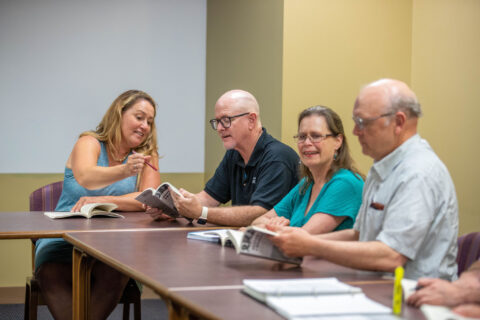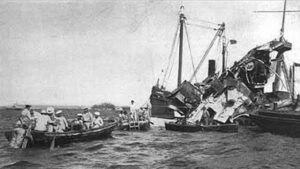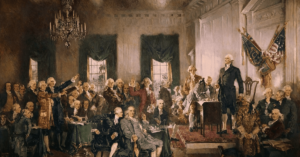
Summer 2023 Professional Development Opportunities
Looking for a chance to flex your scholarly muscles this summer? Or in need of recertification hours? Teaching American History has a variety of PD opportunities available for educators this summer—join us! Learn More.
Online
HIST 502 O4B / POLSC 502 O4B: The American Founding (June 19-29)

This course is an intensive study of the constitutional convention, the struggle over ratification of the Constitution, and the creation of the Bill of Rights. It will include a close examination of Federalist and Antifederalist writings.
Instructor: David Alvis (Wofford College)
Schedule: Mondays, Tuesdays, Wednesdays, & Thursdays, 7:15 pm to 10:30 pm ET
Course Materials:
HIST 501 O5B / POLSC 501 O5B: The American Revolution (July 3-13)
This course is an intensive study of the principles of the American Founding and the documents that embody them, especially the Declaration of Independence and U.S. Constitution. These principles will be illuminated through a close study of the constitutional convention, the struggle over ratification of the Constitution, the Bill of Rights, and important constitutional controversies that have arisen in American history.
Instructor: Adam Seagrave (Arizona State University)
Schedule: July 3-7: Monday, Wednesday, Thursday, Friday, 6:15 pm to 9:30 pm ET; July 10-13: Monday, Tuesday, Wednesday, Thursday 6:15 pm to 9:30 pm ET
Course Materials: Syllabus & Course Pack
On campus
HIST 630 2A / POLSC 630 2A: American Statesmen-The Adams Family (July 2-7)
The Adams family remains the most distinguished political family in American history. Four generations of the Adamses brought about a revolution, established self-government, participated in the transformation of the republic to a large scale democracy, and then witnessed the industrialized nation take its place on the world stage. Not only were the Adamses America’s statesmen, but they were the keepers of their family’s legacy and the historians of our nation. This course examines the writings of four generations of the Adams family in order to better understand the political transformation of America. These writings will also help us to consider the role of historians in America.
Instructors: Natalie F. Taylor (Skidmore College)
Course Materials: Syllabus & Course Pack
HIST 620 3A / POLSC 620 3A: The Reform Tradition in America (July 9-14)
America has lived through three periods of sustained interest in reforming its political and social life, the first in the decades preceding the Civil War, the second in the decades preceding World War I and the third in the decade or two following World War II. The course examines aspects of these reform movements, particularly their connection to religion and Protestant theology.
Instructors: Dennis K. Boman (American Intercontinental University)
Course Materials: Syllabus & Course Packet

HIST 630 3B / POLSC 630 3B: American Statesmen-Washington and Jefferson (July 9-14)
This course provides a critical examination of two of our great presidents: George Washington and Thomas Jefferson. Although it pays great attention to their presidencies and their political legacies, it also delves into their earlier (and, in Jefferson’s case, later) lives; their formative experiences; familial influence; seminal friendships, and other private matters that helps to better understand them. Great use will be made of primary sources – letters, speeches and other sources of documentary evidence.
Instructors: Jeremy D. Bailey (University of Oklahoma) and Marc K. Landy (Boston College)
Course Materials: Draft Syllabus & Draft Course Pack
HIST 631 4A / POLSC 631 4A: American Political Rhetoric (July 16-21)
This course examines American political rhetoric in its broadest sense as the art of political persuasion and civic education. Rhetoric is the art of persuasion, of using language –both written and oral –to convince others of one’s point of view. Yet many perceive such convincing as dangerous, especially to democracies where individual voice matters so much to politics. The line between persuasion and manipulation is not always clear, andthe effects of crossing it can be incredibly corrosive. How and when should we be rhetorically persuasive? Which rhetorical techniques are persuasive and how do they operate? To what extent do rhetoric and persuasion determine our understanding of politics? Surveying notable rhetoricians, we will engage in a careful reading of the speeches and writings of leading statesmen, including Thomas Jefferson, George Washington, Abraham Lincoln, Frederick Douglass, Woodrow Wilson, Franklin D. Roosevelt, Ronald Reagan, and Barack Obama.
Instructor:Abigail Vegter (Berry College)
Course Materials: Draft Syllabus



